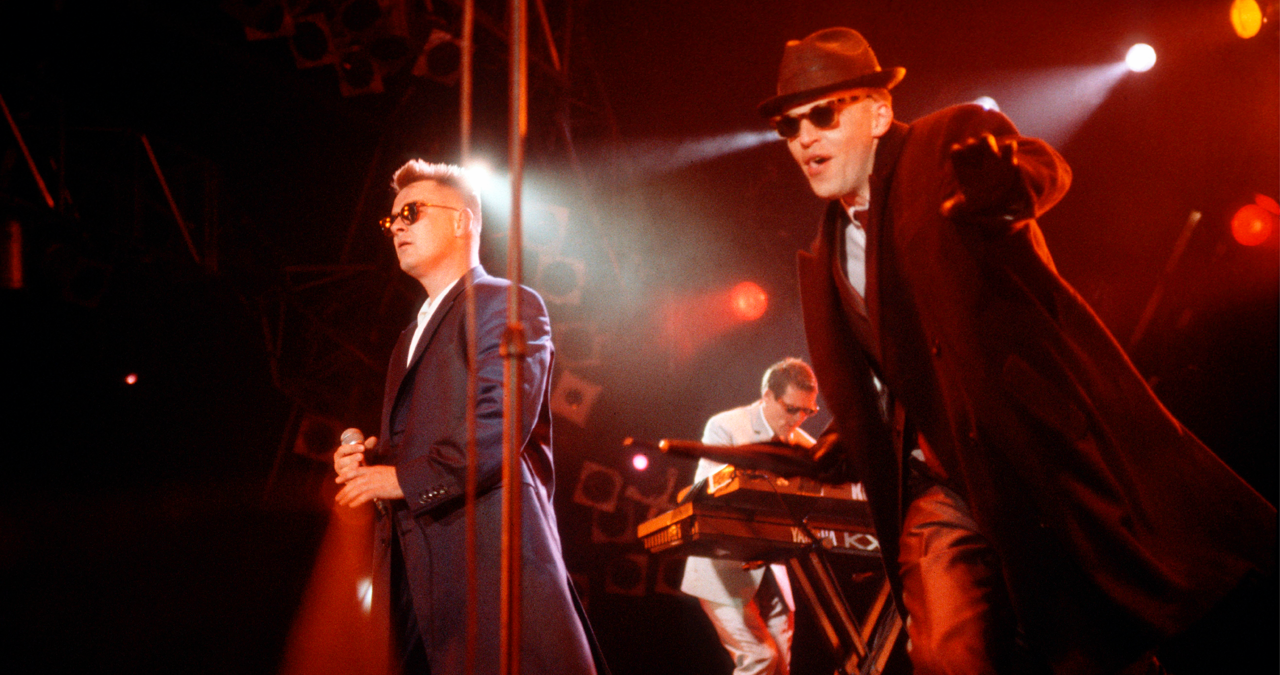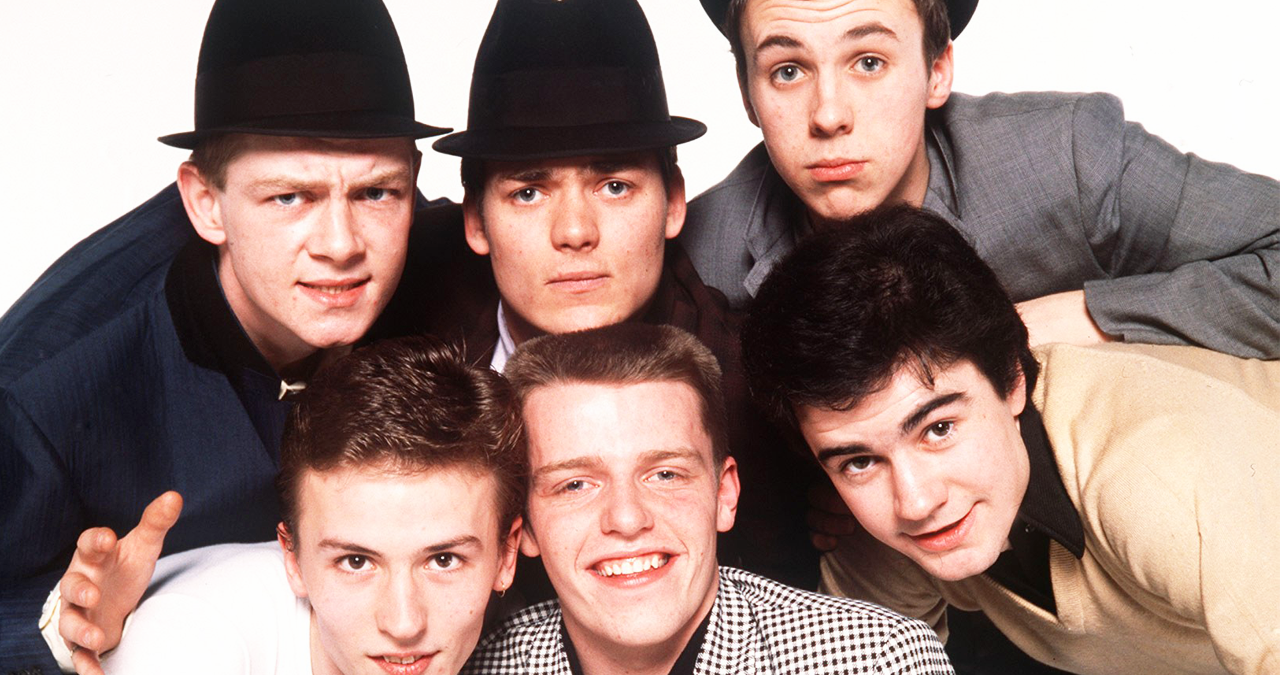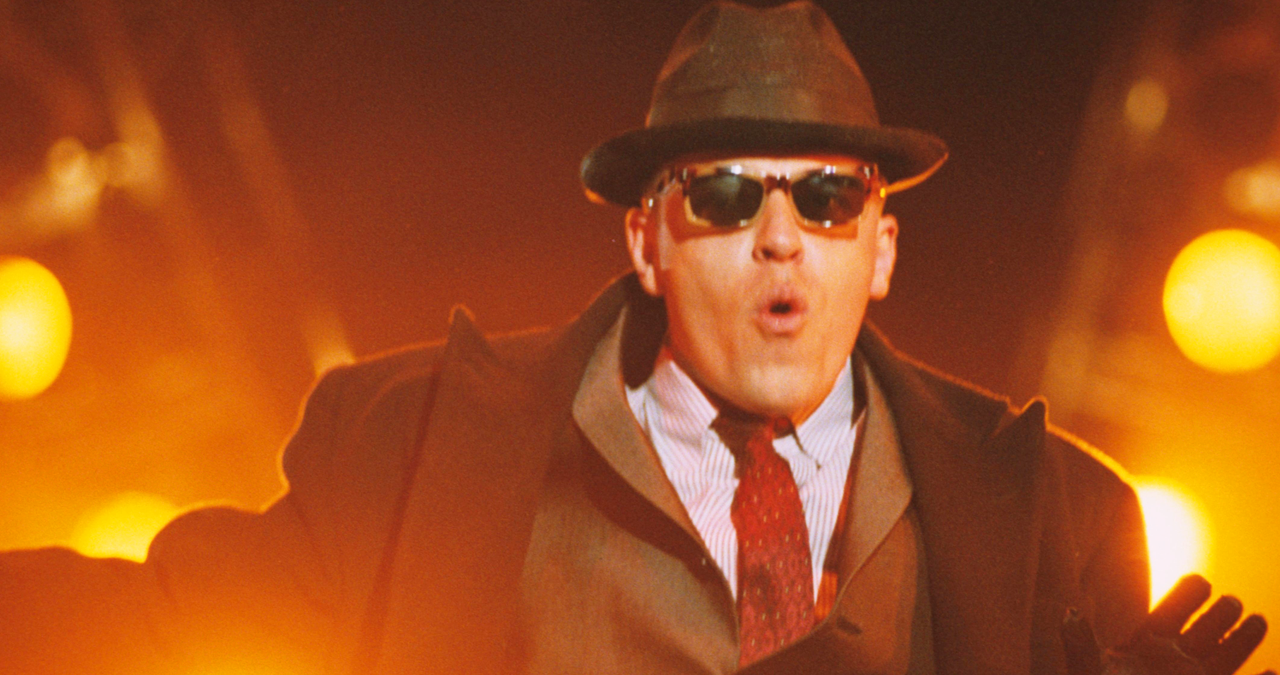“So yeah, we caused an earthquake - something to go on the CV”: The beloved British band whose comeback gig actually made the earth move
Surrounding residents had to be escorted from their flats the day Madness reunited due to suspected seismic activity

There have been quite a few instances when a mass gathering of human beings, bouncing in unison at a live music event, has caused the ground to literally shake. Often, this underfoot rumbling has been felt by people nearby - triggering fears that something on a seismic level was taking place.
There’s been some notable examples over the years, from the Bass Center festival’s thumping low-end being felt five miles away, to Taylor Swift’s Era’s Lumen Field show in Seattle causing actual seismic activity to be registered by scientists.
But perhaps the most dramatic - and legendary - was the ground-quaking return of ska-pop legends Madness. During a pair of comeback shows at London’s Finsbury Park in 1992, the seven-piece 'nutty boys' made enough of a ruckus that the ground itself began to ripple as an assembled mass of 36,000 people pogoed in tandem.
One of the biggest players in '80s ska pop, Madness’ penchant for uptempo, hook-filled party-pleasers had won them a dedicated fanbase since their inception in the the late 1970s.

Future wedding disco staples Baggy Trousers, One Step Beyond and House of Fun were easily accessible to both young and old, and were joyously frivolous. They were also infused with an anarchic, punky undercurrent wedded to a surrealist aesthetic.
Their fans often saw their shows as an excuse to let all inhibitions go. Dancing stupidly, pulling shapes, pogoing with abandon and generally not staying still was the order of the day.
“It was a musical form that historically had been looked down upon by the British musical intelligentsia,” said Madness lead singer and figurehead Suggs of his troupe of hell-raisers in autobiography That Close. “Music that yobbos in Mecca ballrooms danced, and fought, to on a Saturday night.”
But, as the eighties dwindled, so too did the group’s fortunes. After a bungled attempt to record a seventh album, A beleaguered Madness called time on their cartoonish high jinks in 1986.
Want all the hottest music and gear news, reviews, deals, features and more, direct to your inbox? Sign up here.
A little over six years later, in early 1992, promoter Vince Power offered the band the opportunity to stage their own festival and ‘have a bit of a reunion’.
The former Madness members jumped at the chance to reform. As Suggs recalled (as quoted on Seven Ragged Men); “I was conscious that [Madness] hadn’t ended as it should have, and ever since we’d been circling each other like boxers in the ring, somehow waiting for it to click. So after fizzling out, maybe this was our chance to say goodbye properly and make some money. But it was only meant as a one-off - that was definitely the deal.”
Word had travelled far about the reunion, and on the 8th August 1992, 36,000 devotees gathered at London's Finsbury Park to witness the long-awaited moment.
The event had spiralled into a bit of a mini-festival - dubbed 'Madstock' - and now stretched over two days. Other sets came from Ian Dury and the Blockheads and Morrissey. The later of which caused some mischief of his own by unwisely flailing a Union Jack flag on-stage… but that’s an entirely different story.

At 8:45pm, Madness emerged to a rapturous reception from the assembled masses of dyed-in-the-wool fans. Fired-up from this warm welcome back, the gang kicked off proceedings with their chaotic anthem for delinquency - One Step Beyond.
The fans let loose, and then the earth itself began to tremor.
“Suddenly there were 36,000 fans jumping up and down. Flats reverberated, a sofa went across the room, windows cracked,” said Madness’ secondary vocalist Carl Smyth, while keyboardist Mark Barson remembered “It was just massive, over the whole hill. Everybody was dancing, right to the very back."
The net result of tens of thousands of boots impacting the ground was sizeable. This quantity of these minuscule shockwaves built up into one big vibration, which began to spread out across the local area of Finsbury Park.
Worried calls went in from residents to local authorities, and, not clocking the nearby Madness-fest, the police believed something potentially apocalyptic might be about to take place. Assuming an earthquake was brewing, a call was put in to the British Geological Survey…
“They said that people had been phoning in saying that there had been an earthquake in London,” remembered seismologist Alice Walker in BBC documentary Young Guns Go For It. “They had described some effects like heavy lorries passing outside. People were frightened. Tower blocks were being evacuated because people thought the tower block was going to fall down. It was an intensity of about five. When I told the police that I thought the cause of the disturbance was a Madness concert at Finsbury Park, they didn't believe me at first. I got a phone call the next night [during the same time-frame as the second night's show] from the police who said exactly the same felt effects had occurred - and so they did believe me after all. So my reputation as a seismologist still remains intact!"
As Suggs reflected decades later in an interview with BBC’s The One Show; “[36,000] people turned up and when we started One Step Beyond they started jumping up and down in unison. And as it said there they had to evacuate flats. Then it happened the exact same time the following night [when we played]. So yeah, Madness caused an earthquake - which is something to go on the CV.”

I'm Andy, the Music-Making Ed here at MusicRadar. My work explores both the inner-workings of how music is made, and frequently digs into the history and development of popular music.
Previously the editor of Computer Music, my career has included editing MusicTech magazine and website and writing about music-making and listening for titles such as NME, Classic Pop, Audio Media International, Guitar.com and Uncut.
When I'm not writing about music, I'm making it. I release tracks under the name ALP.
You must confirm your public display name before commenting
Please logout and then login again, you will then be prompted to enter your display name.